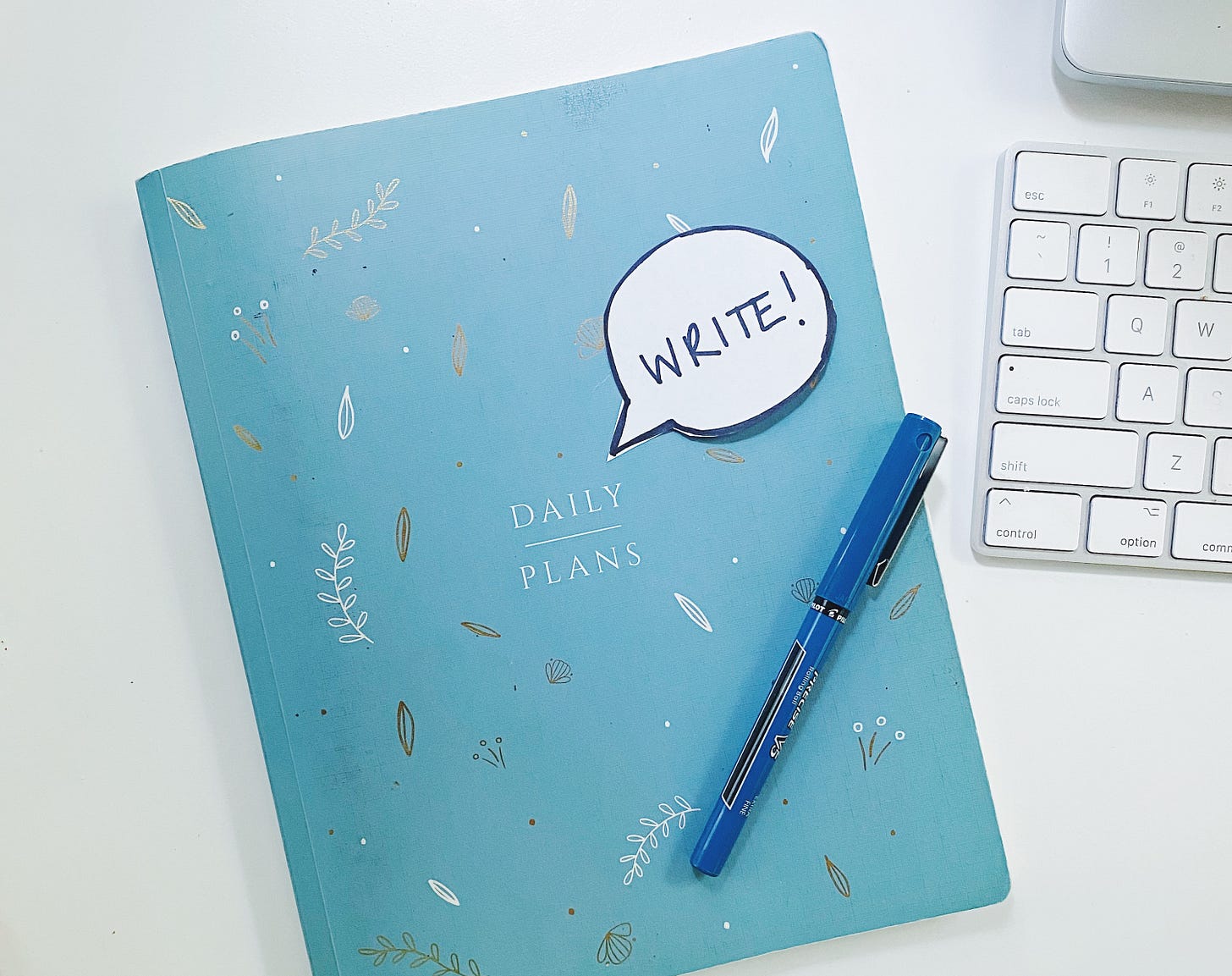A few weeks ago, there was a lot of chatter online about how the heck one finds the time to write when busy with all the normal life stuff.
Many folks chimed in with “Just write,” and some people found that wildly unhelpful. Meanwhile, plenty of other writers were chorusing, “No, but really! That is the answer. Just write—whenever and however you can!”
A…
Keep reading with a 7-day free trial
Subscribe to From the Desk of Erin Bowman to keep reading this post and get 7 days of free access to the full post archives.


